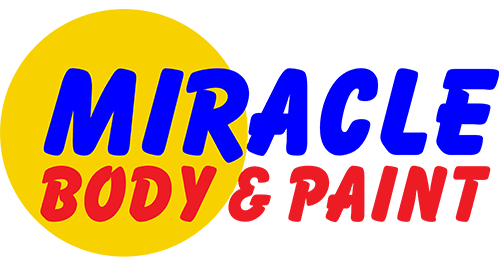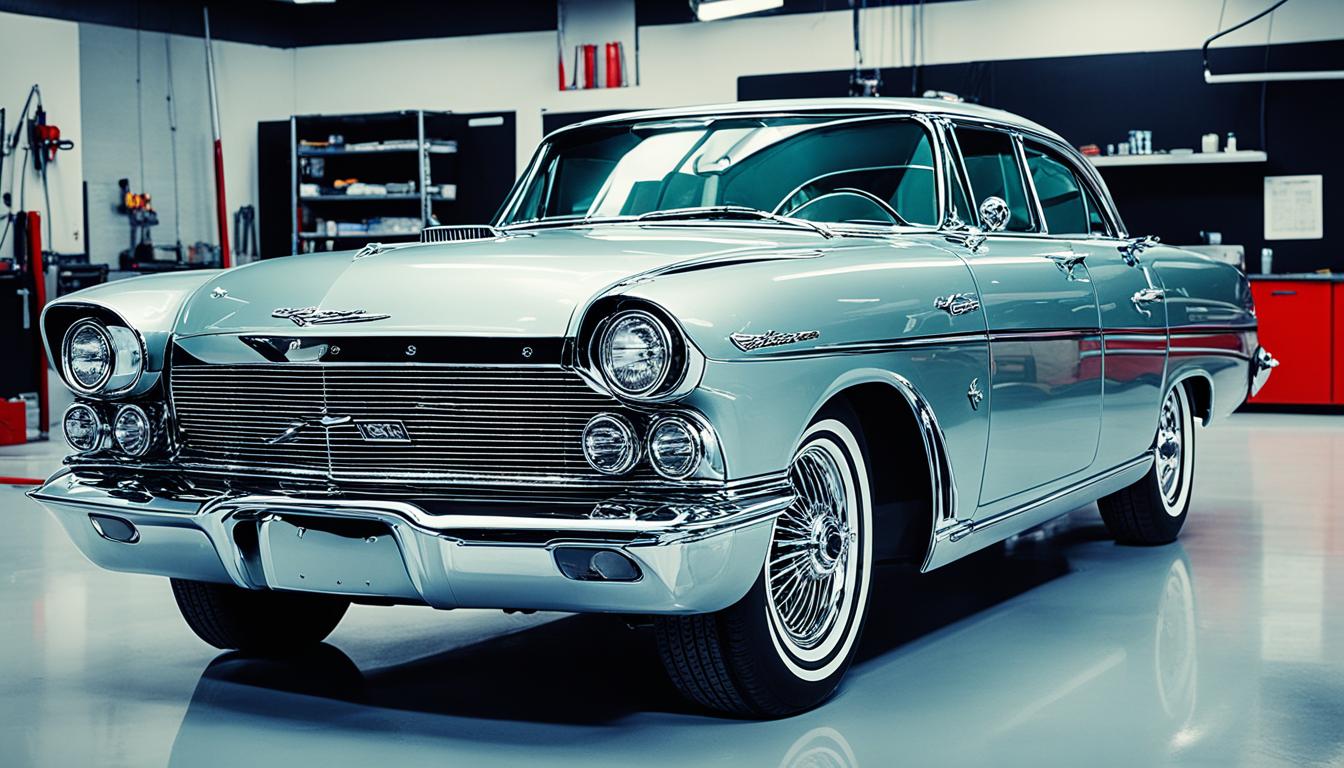
The Role of Auto Body Repair in Vehicle Resale Value
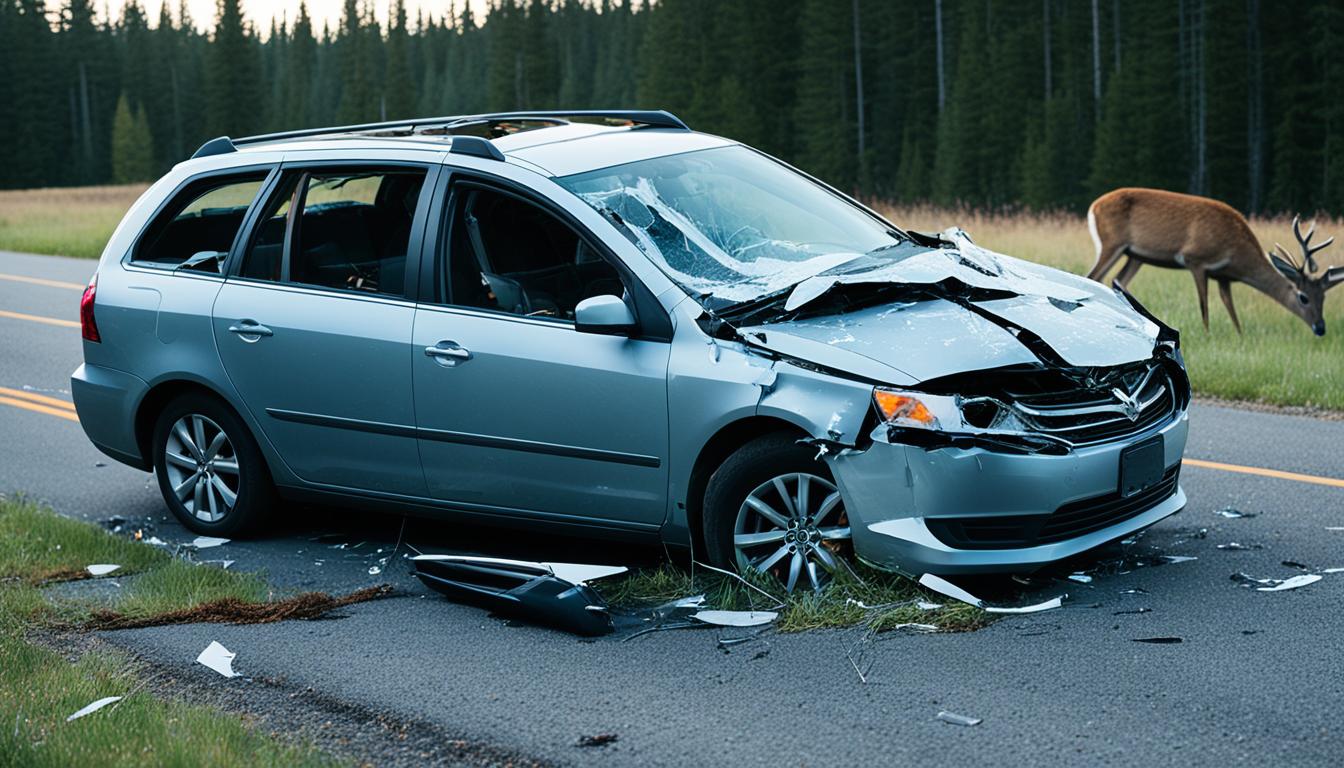
Dealing with Deer Collisions: Prevention and Repair
Getting the news your car is a total loss is tough. It means the repair cost is more than what it’s worth. The value varies by state. Your insurance may say it’s totaled even if the state’s bar is lower.
Your insurance looks at the car’s value before the damage. This is called its actual cash value (ACV). They consider its age and wear to set this value. If repair cost is more than the ACV, it’s a total loss. You then get paid the ACV by your insurer.
Key Takeaways:
- A totaled car is one where the repair costs are higher than the car’s book value.
- Each state sets its own threshold for determining total loss, but insurance carriers may use a lower threshold.
- The insurance company calculates the car’s actual cash value (ACV) before the loss.
- If the repair costs exceed the ACV, the car is declared a total loss, and the insurer will reimburse you for the ACV.
- Seek guidance from your insurance company regarding the necessary next steps.
Quick Facts About Totaled Cars
Dealing with a totaled car means understanding what insurers look at. They compare repair costs to a car’s actual cash value (ACV) to decide if it’s a total loss. Some insurers also consider the car’s safety, even after fixing it.
The ACV is the car’s worth before the accident, minus depreciation. This is key to knowing if repair costs are more than the car’s value. According to LexisNexis Risk Solutions, 27% of collision claims in 2022 ended with a total loss. This shows how big a deal it is for both insurers and car owners.
How long it takes to process a total loss claim can change. It depends on things like who’s at fault and if more investigations are needed. Insurers try to deal with these claims fast. But, you might still face some waiting time.
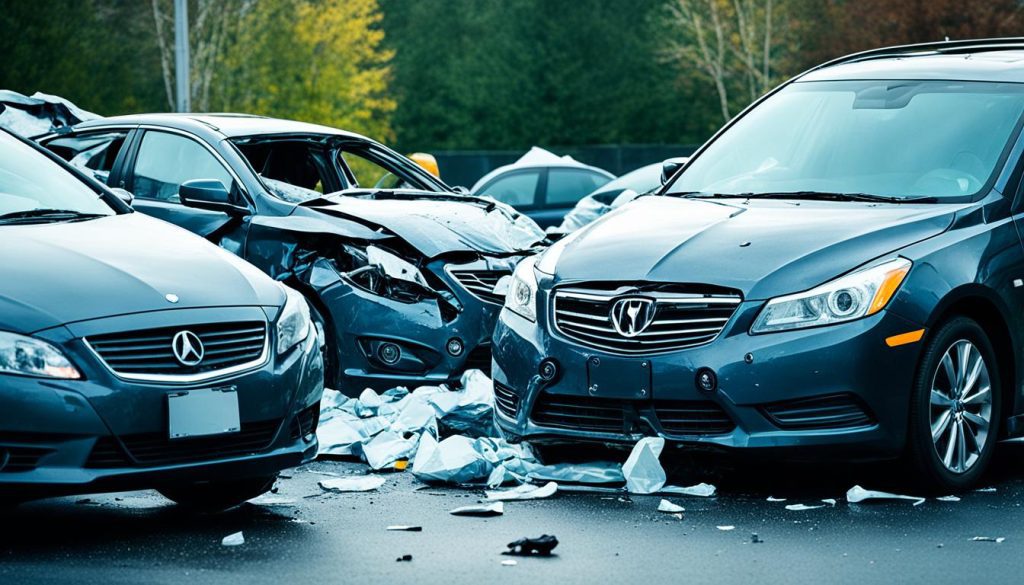
This image shows what can happen to cars after a wreck. It’s a clear look at the challenges car owners might meet.
How Insurance Companies Determine a Total Loss
Insurance companies look at many things to see if a car is a total loss. They check the car’s value before the damage, repair costs, and state rules. The car’s Actual Cash Value (ACV) is key. It’s the value before the accident, minus depreciation.
The insurance company sends someone to check the car’s damage and repair costs. This expert, also called an adjuster, figures out how much repairs might cost. This step is essential to decide if fixing the car costs more than the car’s value.
If fixing the car is too expensive, the insurance company calls it a total loss. Then, the car owner gets paid its ACV. They can’t use this money for repairs instead.
This way, insurance companies don’t spend too much on expensive repairs. They compare repair costs with the car’s value. This helps them stick to the insurance policy and state rules.
The car’s safety after repairs also matters when deciding on a total loss. If repairs are a lot but still under the cost limit, the insurance company might think the car is not safe to drive. They could call it a total loss for safety reasons.
Knowing how insurance companies decide about totaled cars is useful for car owners. It helps them understand what the insurance company is looking at. This knowledge can help get the right money for a totaled car.
Steps To Take When Your Car is Totaled
When your car is totaled, it’s important to act fast. Make sure everything goes smoothly. Here’s what to do:
- Contact your insurance company: First, call your insurance company. Tell them about the accident and file a claim. Give them all accident details. This starts the process of getting your settlement.
- Review the settlement offer: Your insurance company will check the damage. They’ll then offer a settlement. Check this offer closely to ensure it’s fair.
- Negotiate if necessary: You can negotiate if the offer seems low. Show proof that your car is worth more. This helps get a better settlement.
- Consider your replacement options: After your car is totaled, start thinking about getting a new one. Explore future car options. Look for something reliable, safe, and within your budget.
How you handle the situation after your car is totaled really matters. By contacting your insurance right away, examining the settlement carefully, and negotiating if needed, you can come out ahead. Think about your next car wisely. This will help you face the challenge with certainty.
Can I Keep a Totaled Vehicle?
If your car is badly damaged in an accident, you might wonder if you can keep it. Sometimes, the choice to keep your wrecked car is up to you. The insurance will still pay you, minus what the car’s parts and materials are worth. That’s called the salvage value.
This salvage value is what the car is likely worth in its now damaged state. It’s figured out by how much the car parts and materials can be sold for. The insurance company uses this to reduce what they pay you. This way, they don’t have to cover all the costs.
But, think carefully before deciding to keep your totaled car. You need to know that it will end up with a branded or salvaged title. This title shows it’s been through a big accident and needed repairs.
With a branded title, getting good insurance later might be a problem. Some companies might charge you more for coverage. When it’s time to sell the car, its value might not be very high. This is because people know it was in a bad accident before.
Taking into account these points, make your decision wisely. Yes, it might mean a lot to you. Or it could save you money now. But later, you might face challenges with insurance and selling the car.
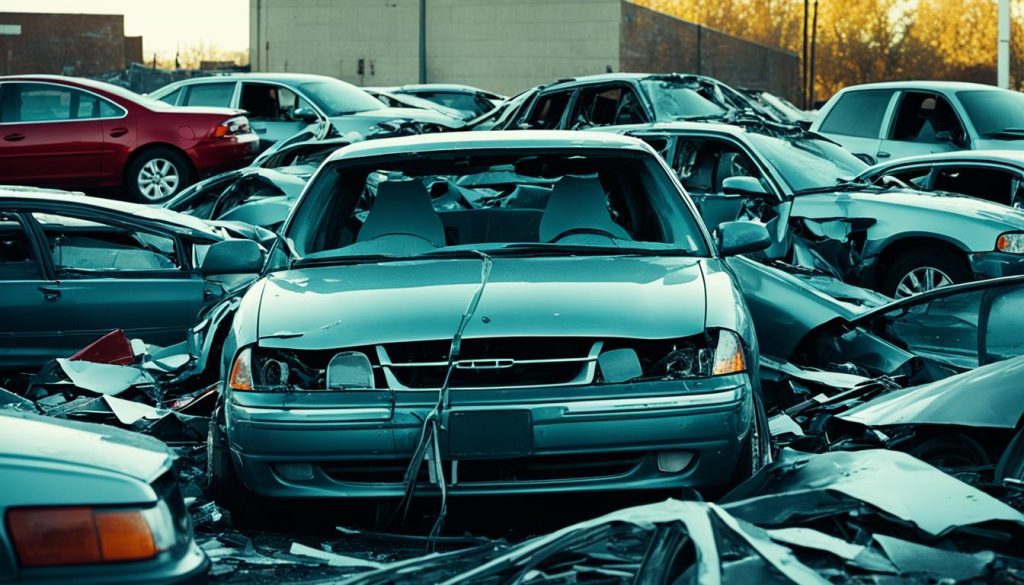
Conclusion
Dealing with a totaled car can seem overwhelming at first. Yet, if you understand how insurance companies figure out a total loss, it becomes easier. You should talk to your insurance, go over the settlement offer, and think about keeping the car.
Miracle Body and Paint is ready to help in San Antonio and nearby areas like Leion Valley. We know the ins and outs of insurance claims. Our experts will guide you to get a fair deal for your car. We’ll also check out what replacement options you have. This could mean getting a new car or finding something similar.
Don’t go through this alone. We’ll take care of talking to the insurance company and advise you on your insurance claims and replacement options. Contact us at Miracle Body and Paint for help today. We aim to make this tough time easier for you.

